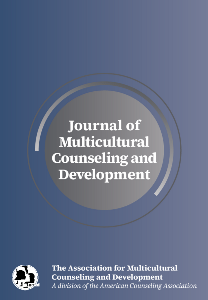A Place for Multicultural Counseling Research, Theory and Practice
Journal of Multicultural Counseling and Development is the official journal of the Association for Multicultural Counseling and Development (AMCD), a division of the American Counseling Association. Access is available through the Wiley Online Library to AMCD members and subscribers.
For full access to this journal, you must be logged in and an authenticated AMCD division member.

SCOPE
FREQUENCY
EDITOR

The full editorial board roster is available on the Wiley site.
SUBMISSIONS
The Journal of Multicultural Counseling and Development invites articles concerned with research, theory, and implications for practice pertinent to racial/ethnic minority and multicultural interests in all areas of counseling and human development. Additional information about submissions can be found here. New manuscripts should be submitted via the Research Exchange submission portal.
